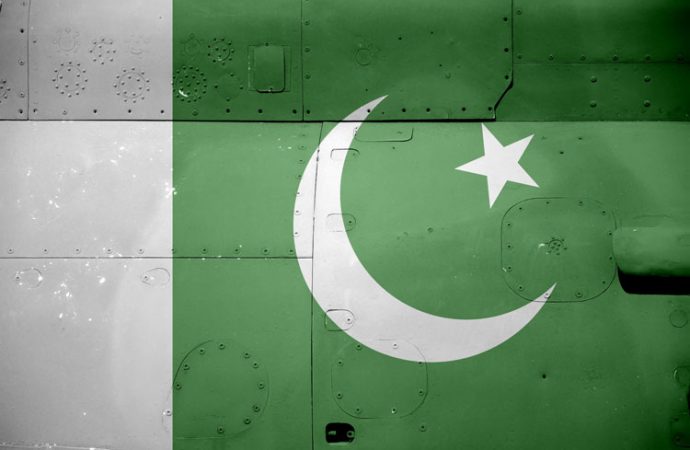Author Recent Posts Rabia Anwaar Latest posts by Rabia Anwaar (see all) Reignited Pak-Afghan Tensions: What Could Be the Way Forward? – November 4, 2025 Geopolitics and the Future of Gaza: Who Are the Real Stakeholders? – October 15, 2025 Iran’s Nuclear Ambitions and Israel’s Aggressive Dominance in the Region – July 15, 2025
Gulf countries and Pakistan are connected with each other through their military, strategic and economic interests. In International Relations, there is no free-rider, rather the states conduct foreign relations by agreeing to give and take on the basis of their chosen interests. Pakistan’s foreign relations with the Gulf countries, particularly with the member states of the Gulf Cooperation Council (GCC) such as Saudi Arabia, the United Arab Emirates (UAE), Qatar, Kuwait, Oman, and Bahrain, have historically played a significant role in shaping its economy. Likewise, Pakistan takes pride for sharing strategic and military ties with them such as military training, joint exercises and security cooperation. Not only in terms of economic and financial needs, gulf is significant to Pakistan for its expertise in the provision of petroleum and oil. Pakistan’s relations with Gulf countries have a profound impact on its economy through remittances, trade, investment, and financial aid. While these relations offer significant benefits, they also pose challenges particularly regarding economic dependency and the need for diplomatic balancing between key regional players.
Overseas Pakistanis in Gulf countries are an asset to it. The Pakistani diaspora in Gulf countries particularly in Saudi Arabia, the UAE, Qatar, and Kuwait is substantial, with millions of Pakistani workers employed in various sectors such as construction, healthcare, and services. Approximately, 2.64 million in Saudi Arabia and 1.3 million expats are currently working in the UAE. This expatriate community is a significant source of remittances, contributing billions of dollars annually to Pakistan’s economy. The diaspora also strengthens bilateral relations, fostering economic and cultural ties between Pakistan and Gulf nations. However, in the recent years UAE’s strict visa policies and Saudi Arabia’s stringent diplomatic behavior towards Pakistan, have cost it heavily.
In the recent years, Pakistan have paid an enormous price due to some foreign policy decisions, which principally, it shouldn’t have done as every state is sovereign in its foreign policy decisions. Since Pakistan partnered with Turkey-Iran-Malaysia, its gulf partners acted strict to it. As an outcome, UAE suspended work visas for Pakistanis and Saudi Arabia halt its $ 20billion in investment. Also, despite facing challenges such as labor rights issues and economic vulnerabilities, the Pakistani diaspora remains integral to both the host countries’ labor markets and Pakistan’s economic stability.
The Gulf countries are major trading partners for Pakistan. They are a key market for Pakistani exports such as textiles, agricultural products, and labor services. In return, Pakistan heavily relies on the Gulf countries for its energy imports, especially crude oil and natural gas. Countries like Saudi Arabia and Qatar are critical suppliers of these resources, which are vital for Pakistan’s energy security. Moreover, the Gulf countries have invested in Pakistan’s energy infrastructure, including oil refineries and power plants. These investments help Pakistan meet its growing energy demands. Furthermore, Pakistan is looking to diversify its economic relations within the Gulf while seeking more investments in non-oil sectors, tourism, and technology. Pakistan holds full potential to yield a profitable outcome in these sectors. Also, Gwadar Port development can be a pivot in attracting Gulf investments and enhancing economic cooperation.
Gulf countries, particularly Saudi Arabia and UAE have assisted Pakistan in its worst economic crisis. For instance, Saudi Arabia and the UAE have provided financial assistance repeated times to help Pakistan manage its balance of payments issues and foreign exchange reserves. Saudi Arabia has often provided Pakistan with oil on deferred payment terms, which helps ease the burden on Pakistan’s foreign reserves.
As in International politics, it is always a two-way traffic that works out; Pakistan has strong military and strategic ties with Gulf countries, built over decades of cooperation. Pakistan has long provided military training to Saudi armed forces. Pakistani military instructors are stationed in Saudi Arabia, and Saudi officers regularly train at Pakistani military institutions. Joint military exercises such as Al-Samsaam, are conducted to enhance coordination and combat readiness between the two forces. Similar to Saudi Arabia, the UAE also benefits from Pakistani military training. UAE military personnel regularly attend training programs at Pakistan’s military academies. Pakistan and the UAE conduct joint military exercises to enhance mutual military capabilities and operational compatibility. For instance, exercises like Zayed Talwar, focus on naval operations. Beisdes KSA and the UAE, Qatar and Bahrain have signed various defense agreements, focusing on military cooperation, intelligence sharing, and defense production with Pakistan.
Pakistan and Gulf countries have always been there to lend a helping hand to each other when need arise. To enhance their relations, Pakistan and the Gulf countries should build upon their existing strategic, military, and economic ties. economic collaboration should be expanded beyond traditional sectors. Pakistan can benefit from Gulf investments in infrastructure, technology, and renewable energy projects, which will create jobs and spur economic growth. Conversely, Gulf countries can leverage Pakistan’s agricultural sector to ensure food security. Additionally, cultural and educational exchanges can strengthen people-to-people connections, enhancing mutual understanding and respect. Programs promoting tourism and cultural festivals can foster long-term cooperation. There should be a trusted partnership and synergetic effect of collaboration even in non-energy sectors for strengthened bilateral ties.
- Reignited Pak-Afghan Tensions: What Could Be the Way Forward? - November 4, 2025
- Geopolitics and the Future of Gaza: Who Are the Real Stakeholders? - October 15, 2025
- Iran’s Nuclear Ambitions and Israel’s Aggressive Dominance in the Region - July 15, 2025





















Leave a Comment
Your email address will not be published. Required fields are marked with *